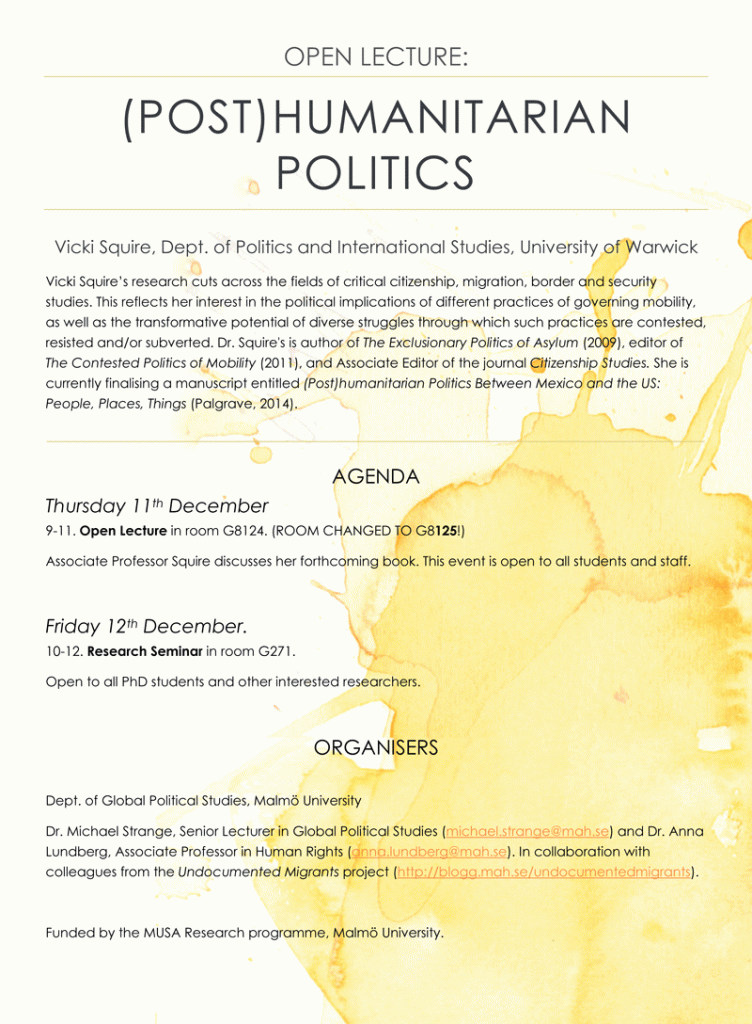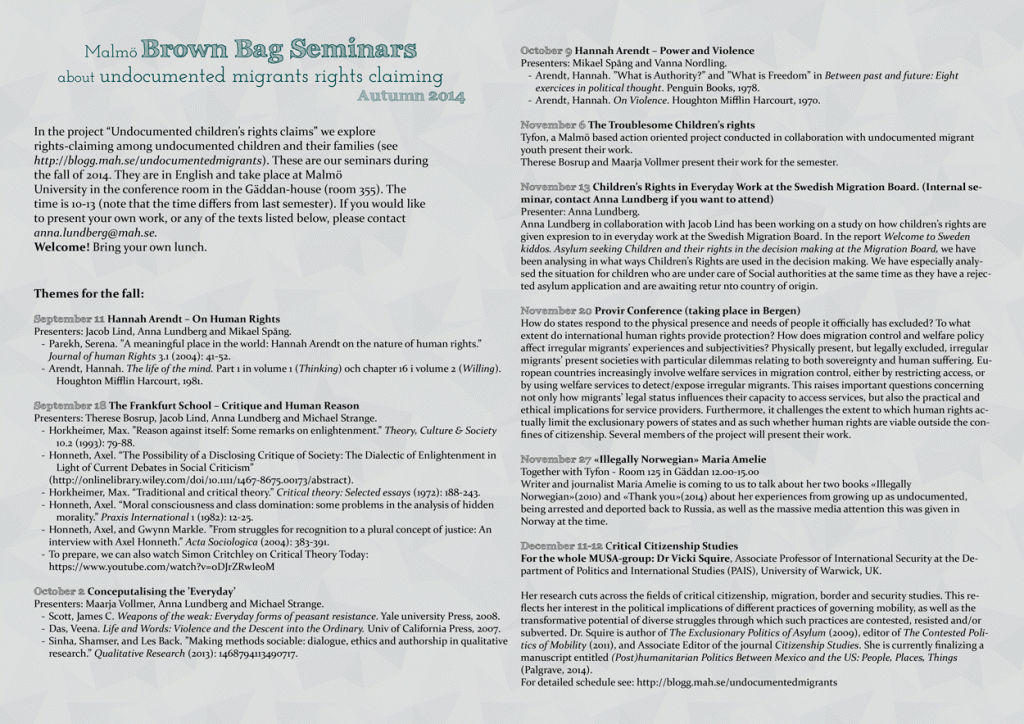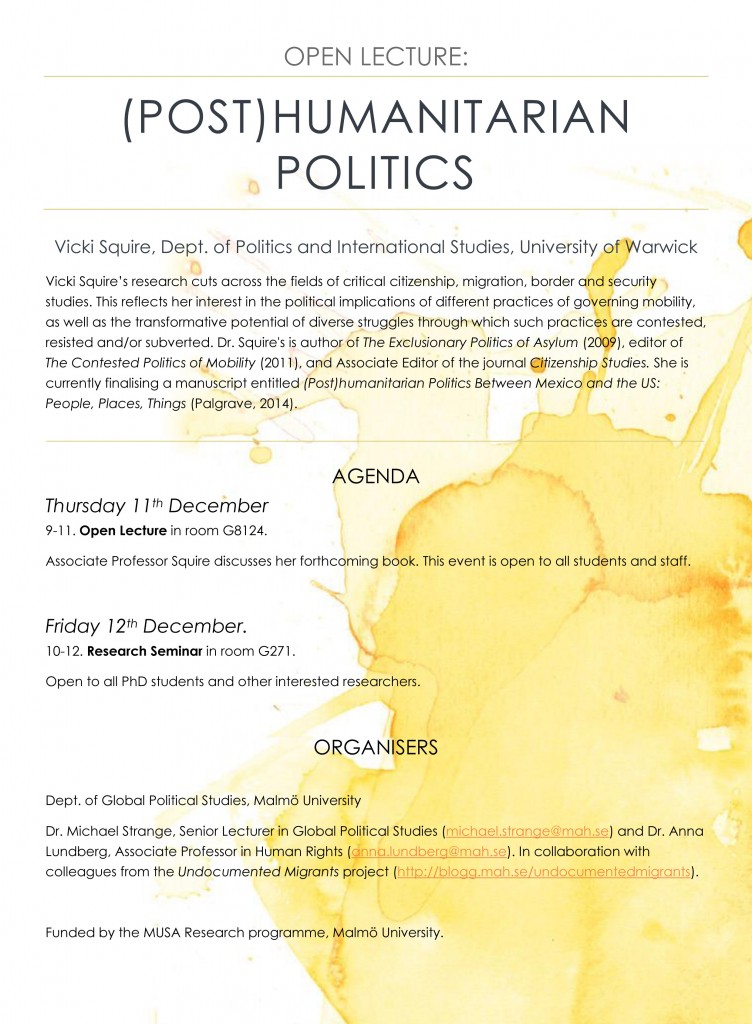Maria Amelie became known nation-wide in Norway, when she first published the book “Illegaly Norwegian”, and then in January 2010 was arrested and later deported to Russia. This book tells her story from coming to Norway as a child wih her family seeking asylum, being rejected but choosing to stay in Norway with help from friends. She managed to get an M.A. degree from NTNU in Trondheim, but keeping her undocumented status a secret to the ever growing network of friends and colleagues. Some months after her book was published, she was arrested by the police outside of the Nansen Humanistic Academy in Lillehammer, some hours north of Oslo, and taken to the deportation center Trandum. This sparked a large mobilisation all over the country, with thousands of people demonstrating in the streets, as most people were unaware that people in this situation even existed in Norway. It eventually lead to a small legal change, allowing asylum-seekers with a job offer to apply for a work visa if they applied from their home country. Maria Amelie did this, and was able to return with a work permit later that spring.
In November 2014, she visited our project and Malmö Högskola to talk about her experiences as described in this first book, and also in her newest book “Takk” that describes and reflects upon the events following the arrest. It is an important and inspiring story, that tells us about the difficult choices that leads to and defines the undocumented situation, the lack of rights and possibilities, but also about hope for change. She recently told her story at the TEDxOslo event, and you can see it here:



